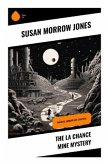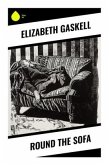In "The Wide, Wide World," Susan Warner presents a profound exploration of a young girl's journey toward spiritual and moral maturity against the backdrop of 19th-century America. The novel is characterized by its rich, descriptive prose and a keen psychological depth that captures the complexities of childhood and the socio-religious values of the time. Through the protagonist, Ellen Montgomery, the narrative weaves themes of resilience, faith, and the trials of women as it critiques the societal expectations imposed on them. Warner's work is situated in the burgeoning genre of domestic fiction, showcasing the challenges of personal growth within the confines of a patriarchal society. Susan Warner, an accomplished author and one of the early female figures in American literature, wrote "The Wide, Wide World" as a reflection of her own values and experiences. Raised in a devout household with a strong emphasis on morality, Warner drew inspiration from her personal encounters withfaith and family dynamics, which permeate the text. Her commitment to portraying genuine emotional truth and a moral compass was a significant aspect of her writing philosophy, contributing to her lasting legacy in American literature. Readers who seek a rich, intricate tale of personal development rooted in a captivating historical context will find "The Wide, Wide World" to be an invaluable addition to their literary collection. This work not only provides insight into the struggles faced by women in the 19th century but also serves as a timeless reflection on the universal quest for identity and spiritual fulfillment.
Bitte wählen Sie Ihr Anliegen aus.
Rechnungen
Retourenschein anfordern
Bestellstatus
Storno








